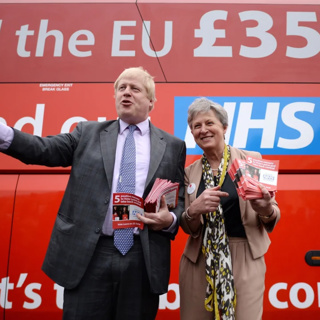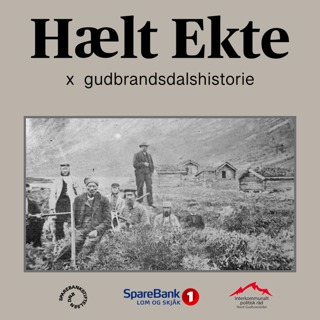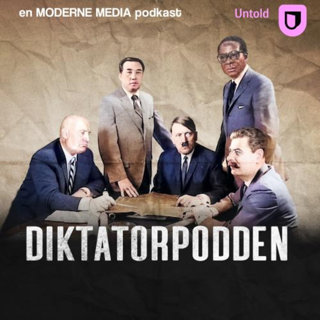
45. Robinocracy
'Robin', or Robert Walpole, Britain's first and longest-serving Prime Minister, came to be known as 'Cock Robin'. Possibly because people around him felt his success had made him cocky. The regime over which he presided was termed the 'Robinocracy'. It was an era of peace, stability and improving government finances. Not enough to save him ultimately from his adversaries, dissident Whigs such as George Grenville and William Pitt the Elder - in other words, members of his own party. He'd given them peace, but they wanted war. Specifically, they wanted Britain's voice to be heard on the world stage. We're on the verge of Britain becoming an imperial power, which we'll be finding out more about in coming episodes. But to make that possible we needed to be a lot more warlike than Cock Robin wanted. So the Robinocracy had to end. Illustration: The Stature of a Great Man or the English Colossus". Satire of Sir Robert Wapole alluding to his "extreme reluctance to engage in war...to resist the aggressions of Spain and France". Caption reads: "Why Man, he doth bestride of narrow World Like a Colossus, and we petty Men – Walk under his huge Legs, & peep about To find ourselves, dishonourable Graves Men at some times are Masters of their fates: The fault, dear P––y is not in our stars, But in ourselves, that we are Underlings —Shakespear [sic]". Public domain picture, from the United States Library of Congress's Prints and Photographs division under the digital ID cph.3b03411. Music: Bach Partita #2c by J Bu licensed under an Attribution-NonCommercial-No Derivatives (aka Music Sharing) 3.0 International License
27 Jun 202110min

44. The Prime Minister
The title 'Prime Minister' used to be a term of abuse. To be honest, depending on the holder of the office, plenty of people would maintain it still is. The first person of whom it was used as a real title in Britain, even if still not officially, was Robert Walpole. We've already met him, as a man who did rather well out of the South Sea Bubble, if more by good luck than by good judgement. That and the support he offered some powerful people in the wake of the scandal around the bubble, above all the king himself, helped him into office: he was seen as a safe pair of hands. A reputation he did much to nurture and generally deserved. Illustration: Robert Walpole, First Earl of Oxford, by Arthur Pond, 1742 National Portrait Gallery 6085 Music: Bach Partita #2c by J Bu licensed under an Attribution-NonCommercial-No Derivatives (aka Music Sharing) 3.0 International License
22 Jun 202111min

43. Bubble
Not all bubbles are all that bubbly. The South Sea Bubble made some people a lot of money - such as Isaac Newton, the physicist but also skilful financier - or a colossal amount of money - such as Thomas Guy, who founded Guy's Hospital, still one of England's great teaching hospitals. But it also ruined a lot of others. Rather like every bubble, down to the present day. This bubble also opened the door for a man who might sort the fallout so competently that not too many in the English elite would suffer badly. Which would make him Britain's first Prime Minister. Truly proving that even a financial disaster could make the fortune of some people... Illustration: Edward Matthew Ward, The South Sea Bubble, a Scene in ‘’Change Alley in 1720, Edward Matthew Ward. Presented by Robert Vernon 1847. Photo: Tate. Tate Reference: N00432. Creative Commons CC-BY-NC-ND (3.0 Unported) Music: Bach Partita #2c by J Bu licensed under an Attribution-NonCommercial-No Derivatives (aka Music Sharing) 3.0 International License
17 Jun 202110min

42. The business of empire is business
England in the early eighteenth century was undergoing great changes. London was Europe's biggest city. And the country was rapidly emerging as a major business centre, displacing the Netherlands from that position. It had a thriving stock exchange and huge overseas trade, led by the venerable East India company. It was also becoming a far livelier place in politics and in thought, with more tolerance for unorthodox ideas and political opposition than most countries. Though, as the experience of Daniel Defoe showed, there were still strict limits to just how far tolerance went. Limited or not, political dynamism, and above all the strong economy, would be the springboard for British imperial dominance in the future. Illustration: The Royal Exchange in London in the late eighteenth century By Thomas Bowles - http://commons.wikimedia.org/wiki/Image:RoyalExchangeThomasBowles1751.jpg, Public Domain, https://commons.wikimedia.org/w/index.php?curid=2360480 Music: Bach Partita #2c by J Bu licensed under an Attribution-NonCommercial-No Derivatives (aka Music Sharing) 3.0 International License
12 Jun 202114min

41. Sex and Sickness
Lady Mary Wortley Montagu was an extraordinary woman, both in her personality and in her contribution to the world, specifically in medicine. This episode looks at both aspects, trying to pick out the complex character behind her image, in particular her possibly ambivalent and certainly far from obvious sexuality. Then, however, it looks at how she became a leading benefactor to humanity, by introducing to England, and through England to Europe, the life-saving procedure of immunising against smallpox by inoculation with the disease itself. That makes this episode not entirely suitable for anti-vaxxers, especially as it ends with a quick look at how her campaign led to the launching of actual vaccination, as opposed to the variolation she promoted. The anti-vaxxers won't like hearing that the procedure has saved hundreds of millions of lives. Illustration: William Powell Frith, Alexander Pope is said to have declared his love to Lady Mary, who simply found it uproariously funny, offending him deeply and turning him into an open enemy. The painting dates from 1852, so it’s a later retrospective and imaginary depiction, but more fun than the contemporary and more serious portraits, which is why I chose it. It’s in the library at Otago, New Zealand, and the image is in the public domain. Music: Bach Partita #2c by J Bu licensed under an Attribution-NonCommercial-No Derivatives (aka Music Sharing) 3.0 International License
7 Jun 202114min

40. Bye, bye Anne. Hello, George. And bye, bye James yet again
In the dying days of her reign, we see Queen Anne refusing royal assent to a bill, a historic moment only because it was the last time ever that a British monarch blocked a bill passed by both Houses of Parliament from becoming law (but she did do it on the advice of her ministers...) We also see her engineering herself a Tory government, backing her High Church Anglican views. Not for long though. When she died and George I took over, he lined up with the Whigs, especially on the terms of the Peace of Utrecht at the end of the War of Spanish Succession, which he thought sold Britain short. So he in turn engineered a Whig majority and many Tories, realising they were in for a bad time, fled abroad. Where some of them went over to the side of the Stuart claimant to the throne, James Edward. We now get him having another go at conquering Britain. Not just once. Not even twice. But three times in under fifteen years. What a bore they were, the Stuarts, weren't they? They just couldn't learn to go away. And as we know from our own experience, a head of state who won't go through the door when he's shown it, is a real pain. Illustration: Prince James Francis Edward Stuart. Studio of Alexis Simon Belle, circa 1712 National Portrait Gallery 348 Music: Bach Partita #2c by J Bu licensed under an Attribution-NonCommercial-No Derivatives (aka Music Sharing) 3.0 International License
3 Jun 202112min

39. Great Britain
It's time for a new country. Time to shake off the old bickering small nations around the island of Britain. It's time for Great Britain to emerge as a powerful new player on the world stage, bringing together Scotland on the one hand and England-and-Wales on the other. Though the fact that Wales is already just an adjunct of England shows what's likely to lie in store for Scotland down this road. How did Scotland get bought, browbeaten and bribed into joining a union with England? Well, by being bought, browbeaten and bribed. This episode investigates the steps that took it there. And how Queen Anne's assertion of deep-rooted Englishness was a reliable indication of what was to come in the future, when Scotland gave up even the pretence of independence. Illustration: The King’s Colours, merging English and Scottish flags into one, before the Irish cross was added to make the modern Union JackMusic: Bach Partita #2c by J Bu licensed under an Attribution-NonCommercial-No Derivatives (aka Music Sharing) 3.0 International License
28 Mai 202114min

38. Malbrough s’en va-t-en guerre
The War of the Spanish succession was really just the continuation of the Nine Years' War, but this time with the specific issue of the succession to the Spanish throne at stake. That, incidentally, meant that Spain swapped sides, fighting with France this time around, since the dying Spanish king had triggered the war by leaving his crown to a claimant from the French royal family. It was a war where the Grand Alliance, again led by Austria, Britain and Holland, won a few battles. It was its turn, after all, following the French victories in the Nine Years' War. But just like those earlier wins, it didn't lead to an outcome from the war any more decisive than the previous time around. What it did come up with was something rare in British history, an effective general in the Duke of Marlborough. A costly one, though, since many of his victorious battles, often fought with his friend and equally skilled Austrian counterpart, Eugene Prince of Savoy, were practically Pyrrhic in their losses for his own side. It was also a war in which, though England went in, Great Britain came out. But why is the subject of episode 39. Illustration: The Duke of Marlborough greeting Prince Eugene of Savoy after their victory at Blenheim, Robert Alexander Hillingford. Public domain. This work is in the public domain in the United States because it was published (or registered with the U.S. Copyright Officer) before January 1, 1926 Music: Bach Partita #2c by J Bu licensed under an Attribution-NonCommercial-No Derivatives (aka Music Sharing) 3.0 International License
23 Mai 202114min





















